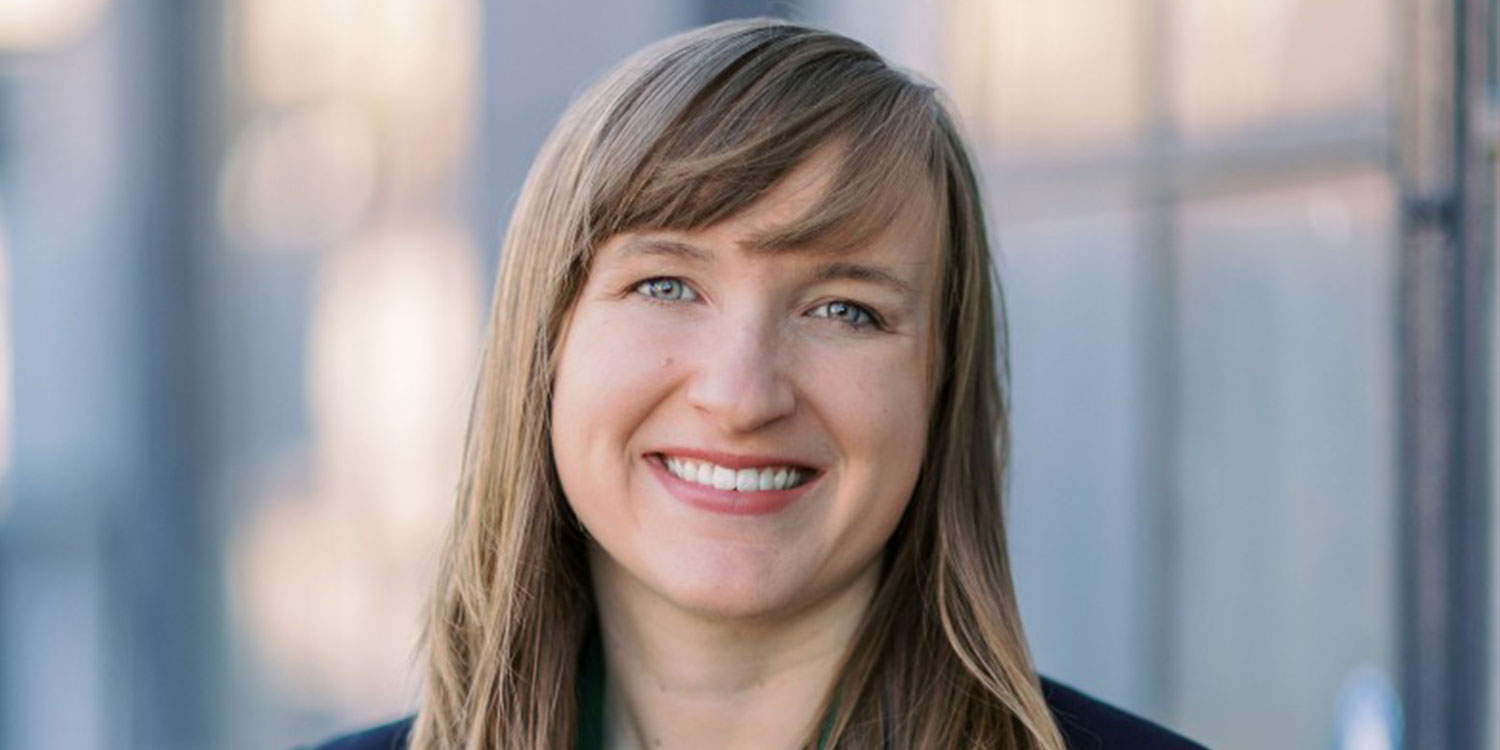Most Americans don’t realize that human trafficking isn’t a distant, hidden crime. It’s happening in their own communities, sometimes just down the street. For Courtney Schmackers ’13, executive director of She Has A Name, turning that awareness gap into informed action has become a passion.
“When Americans think about human trafficking, the picture that probably comes to mind is either a drug-addicted woman on the streets or kids being worked to death somewhere outside the country. That’s kind of it. Period,” said Schmackers.
She knows how limiting that image is. As the leader of a Columbus-based nonprofit combating human trafficking through education and survivor care, she’s spent a years helping people understand the fuller, more uncomfortable reality.
“It looks like parents who are exploiting their kids to feed a drug habit. It looks like families recruited from outside the U.S. who come here for a job, thinking it’s one thing and finding out it’s something else entirely. And as consumers, almost everything we eat, wear, or buy has probably been touched by someone who’s been exploited.”
That’s why education is at the heart of She Has A Name’s mission.
“We’re like the bookends to the anti-trafficking movement,” she explains. “On the front end, we’re focusing on prevention, equipping caregivers and professionals to recognize and respond to exploitation before it starts. On the back end, we’re offering scholarships for survivors, educating sex buyers about what’s really on the other end of that transaction, and working with partners to fill in the care gaps.”
The work is strategic, layered, and deeply collaborative.
“Columbus has a two-pronged approach. You have top-down efforts from the governor, the attorney general’s office, and federal coalitions. Then you have this network of grassroots organizations, doing street outreach, jail outreach, running crisis homes, job skill programs. We’ve learned that if we can specialize, rather than generalize, we’re far more effective.”
Specialization doesn’t mean working in isolation. In fact, Schmackers is quick to point out that She Has A Name actively partners with organizations to ensure their work is inclusive and relevant.
“Our name suggests that we’re a bit more selective, however, the name was established 15 or 16 years ago at a time when the conversation about human trafficking was just johns, pimps, and sex workers. Obviously, many things have happened in the world between 2010 and 2025, and we’ve done a lot of learning ourselves. We work with organizations here in Columbus, like Kaleidoscope and others, that have really helped us understand how we can welcome all of our neighbors. Both in terms of clients at our door and for people attending our training.”
The challenge, Schmackers says, isn’t just in raising awareness, it’s in helping people stay engaged after they learn how vast the problem is.
“When I lead Human Trafficking 101 conversations, some people walk away saying, ‘My eyes are open, I’m ready to fight.’ Others say, ‘This is way bigger and more terrible than I was prepared for, I’m going to put it on a shelf and never look at it again.’ But in the middle, there’s this beautiful color where real change happens,” said Schmackers.
“There are so many wonderful ways that get a seed planted by learning about human trafficking, and that blossoms into something really beautiful that contributes to reducing the demand or caring for those impacted.”
That “middle ground” is where Schmackers sees the most hopeful stories: “Teenagers choosing not to post explicit content of themselves anymore. Parents teaching their kids to recognize good versus bad images online. Churches that say, ‘We’re going to welcome and support people no matter where they are in recovery.’ Businesses saying, ‘We’ll hire someone with a trauma history because you are more than the worst thing that’s happened to you.’”
For Schmackers, the motivation has always been about service and giving back. “I really thought the world was yelling at me to make money and be successful. But quietly inside, I knew I had to care about what I was doing.”
The gravity of human trafficking, the fact that it’s interwoven into so much of everyday life, fuels her passion for this work.
“We should care,” she said simply, “because we’re far closer to the issue than we realize.”
